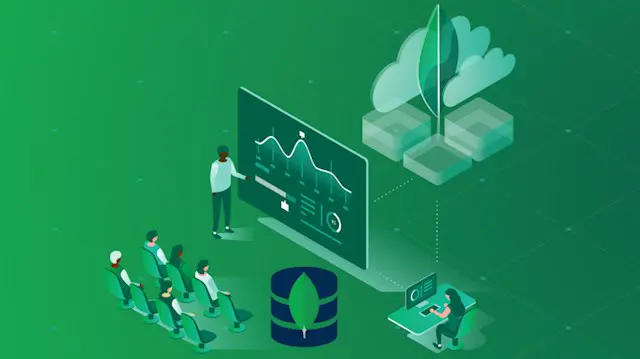
MongoDB Interview Questions
Self-paced videos, Lifetime access, Study material, Certification prep, Technical support, Course Completion Certificate
Uplatz
Summary
- Reed courses certificate of completion - Free
- Uplatz Certificate of Completion - Free
Add to basket or enquire
Overview
Uplatz provides this in-depth course on MongoDB Interview Questions. It is a self-paced course consisting of video tutorials. You will be awarded Course Completion Certificate at the end of the course.
This MongoDB Interview Questions & Answers course by Uplatz focuses on commonly asked interview questions on MongoDB.
These MongoDB Interview Questions have been designed specially to get you acquainted with the nature of questions you may encounter during your interview for the subject of MongoDB. As per our experience good interviewers hardly plan to ask any particular question during your interview, normally questions start with some basic concept of the subject and later they continue based on further discussion and what you answer.
MongoDB is nothing but a document database that can store data in JSON documents. This MongoDB Interview Questions and Answers course is specifically designed to help you get a closer look at the nature of interview questions that you might encounter. Generally, in interviews, recruiters start by asking basic questions and gradually increase the difficulty level. This MongoDB Interview Questions course is hence designed to cater to the industry requirements.
Curriculum
Course media
Description
Mongo-DB is a document database which provides high performance, high availability and easy scalability. MongoDB stores BSON (Binary Interchange and Structure Object Notation) objects in the collection. The concatenation of the collection name and database name is called a namespace.
At the present time, the internet is loaded with big data, big users, big complexity etc. and also becoming more complex day by day. NoSQL is answer of all these problems, It is not a traditional database management system, not even a relational database management system (RDBMS). NoSQL stands for "Not Only SQL". NoSQL is a type of database that can handle and sort all type of unstructured, messy and complicated data. It is just a new way to think about the database.
Who is this course for?
Everyone
Requirements
Passion to learn and succeed!
Career path
- MongoDB Application Developer
- Full Stack Web Developer
- Software Engineer
- MongoDB Admin
- Database Administrator - MongoDB
- Database Architect MongoDB/PostgreSQL
- MEAN Stack Architect - MongoDB/AngularJS
- Backend Developer - Node.js/MongoDB
- Web Developer
- Technical Lead – Full Stack Development
- Data Analyst
- Data Architect/Strategist
- Java & MongoDB Lead
- Python Developer - SQL/MongoDB
- Solutions Architect
Questions and answers
Currently there are no Q&As for this course. Be the first to ask a question.
Certificates
Reed courses certificate of completion
Digital certificate - Included
Will be downloadable when all lectures have been completed
Uplatz Certificate of Completion
Digital certificate - Included
Course Completion Certificate by Uplatz
Reviews
Currently there are no reviews for this course. Be the first to leave a review.
Legal information
This course is advertised on reed.co.uk by the Course Provider, whose terms and conditions apply. Purchases are made directly from the Course Provider, and as such, content and materials are supplied by the Course Provider directly. Reed is acting as agent and not reseller in relation to this course. Reed's only responsibility is to facilitate your payment for the course. It is your responsibility to review and agree to the Course Provider's terms and conditions and satisfy yourself as to the suitability of the course you intend to purchase. Reed will not have any responsibility for the content of the course and/or associated materials.


